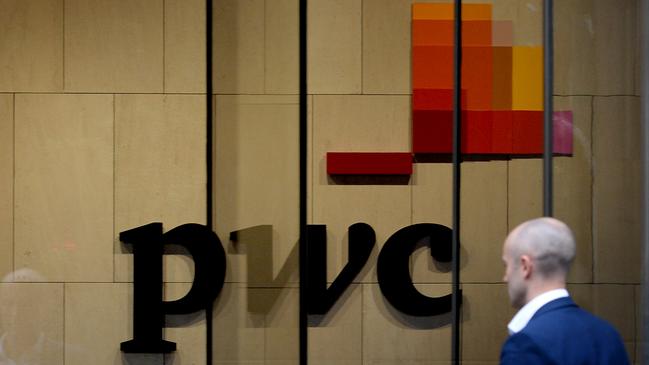PwC offloads govt consulting to private equity firm Allegro
The new company, involving around 130 PwC partners, will commit to working only for the public sector under a plan code named Bell.

Trouble accounting firm PwC Australia is set to spin off its government consulting business — involving some 130 partners — to private equity firm Allegro for $1, under a deal which will see a new company, currently code named Bell, commit to only working for the public sector.
The deal, which was announced to some 2,000 PwC staff involved on Sunday, is being fast tracked in the hope that the new company will be able to retain hundreds of millions of dollars of annual consulting fees from state and federal governments, limiting the growing fallout from the PwC tax scandal.
Under the proposal, which is still being finalised in negotiations between PwC and Allegro, Allegro will assume the liabilities of the new private company, currently called Bell, and commit to investing in new back office and IT platforms and appointing a chair and a new board of directors. The 130 partners involved will be given equity in the business.
The new company, which takes in partners involved in PwC’s government, health, infrastructure, and defence (GHID) and Risk Services consultancies, will market itself as a structure that rules out any conflict of interest by only working for government and public sector groups.
It is hoping this can create a point of difference from the other three big accounting firms in Australia.
It will not be doing any work for the private sector, to avoid the potential conflict of interest which saw some PwC staff use knowledge gained from its government advisory work on tax to generate fees from multinationals on how to get around the laws.
The parties involved briefed the Treasurer Jim Chalmers and senior government officials late last week.
Sources told The Australian that PwC’s local leadership had told the partners in its government consulting arm they needed to go out on their own, a move decided in a bid to stem the fallout from the scandal around former head of international tax for the firm, Peter Collins’ consulting work for multinationals on their tax arrangements.
The PwC government team spoke with several groups but quickly settled on working with private equity group Allegro, which recently bought law firm Slater and Gordon.
The firm recently sold the Pizza Hut business to the Flynn Restaurant Group of the US after taking control in 2016 and significantly increasing its share of the Australian market.
Bell will have the governance standards of an ASX-listed company. Allegro is already in talks with potential candidates for the role of chair, with the chair to oversee the appointment of directors.
Once in place, the new board will conduct a global search for a chief executive, which could come from within the current list of partners or could be external.
While in-principle agreements have been reached, expectations are that it could still take several weeks to finalise a binding deal between Allegro and PwC.
But both sides are keen to finalise the deal to prevent the loss of government business which could occur as controversy over PwC’s future drags on.
None of the 130 partners involved in the new Bell group were involved in the potential leaking of information gained from PwC’s tax advisory work with the government on tax for the use of multinational clients.
Under the proposal, Bell will have a transition period where it will continue to use PwC’s IT and back office facilities under contract until it can set up its own fully independent operations.
PwC employees, including those who will move into the Bell business, will be briefed on Sunday.
Bell is a code name stemming from the Liberty Bell in Philadelphia, a symbol of American independence.
The company will seek advice on a new brand name and logo for its future use.
The PwC partners involved will have to give up their partnership of PwC.
Meanwhile, Bell staff had agreed to review the recommendations of a report currently being undertaken by former Telstra chief executive, Ziggy Switkowski, and any other PwC reviews and adopt any recommendations which they make which are specific to the Bell business.
An interim team of PwC partners has been set up to lead the transition from the GHID and Risk Services consultancies.
These comprise Tim Jackson and Diane Rutter in Sydney, Ben Neal and Josh Chalmers in Canberra, Kate Evans, Adrian Box and David Sacks in Melbourne, Chris Rogan in Brisbane, Jamie Briggs in Adelaide and Tricia Tebbutt in Perth.
Adrian Loader and Fay Bou have been leading the deal for Allegro.
Founded in 2004, Allegro is an independently owned Australian investment manager based in Sydney with more than $4bn of assets under management across Australia and New Zealand.
Since it started, it has bought 27 businesses, and sold 18 investments.
The new company has committed to install strong governance and transparency frameworks, including around managing conflicts.
All partners and staff will sign a new code of conduct based on the Australian Public Service Commission Code.






To join the conversation, please log in. Don't have an account? Register
Join the conversation, you are commenting as Logout